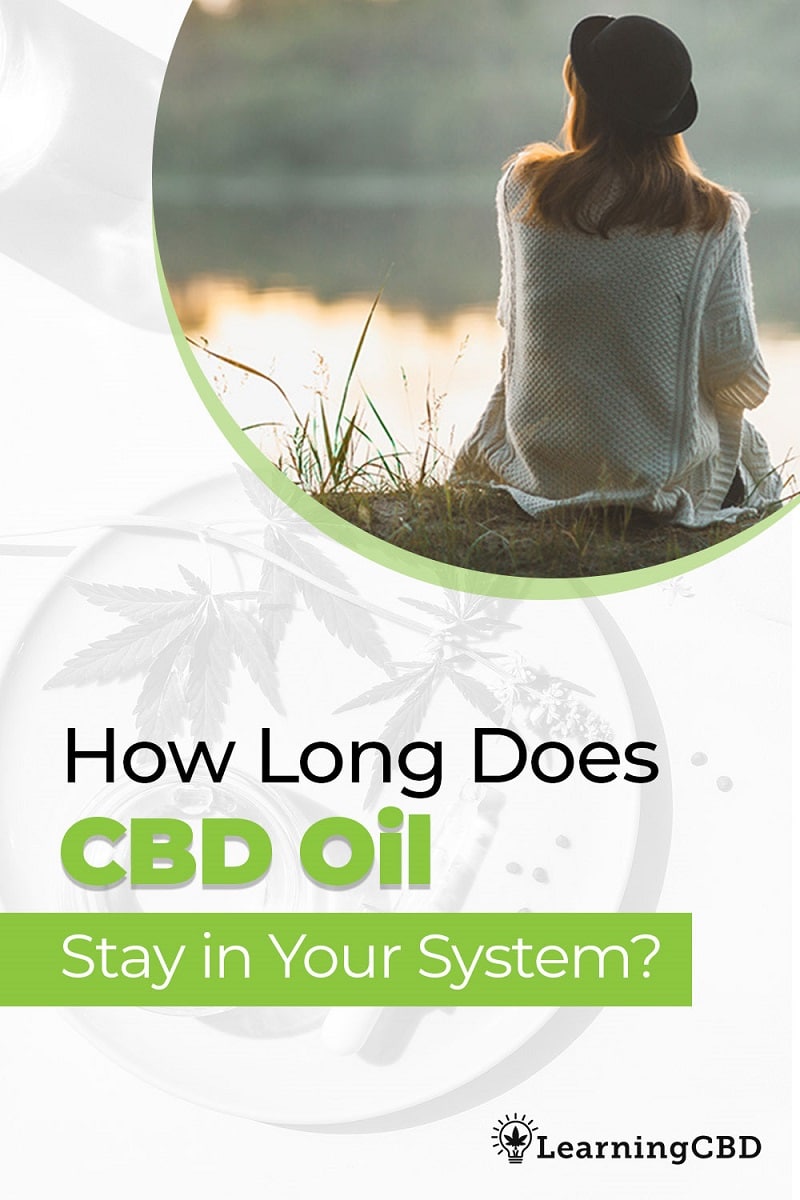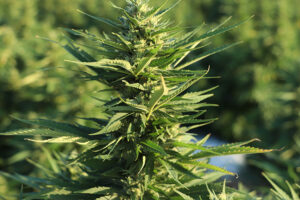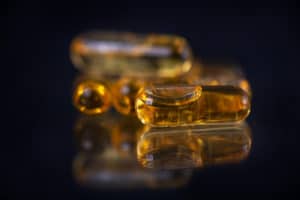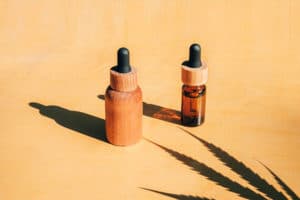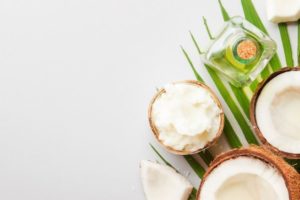As more people turn to CBD for its potential health benefits, a common question arises. How long does CBD stay in your system? Understanding this aspect of CBD usage is crucial for those who are subject to drug testing or simply want to optimize their CBD experience. In this comprehensive guide, we’ll delve into the factors affecting CBD’s duration in the body, how it is detected in drug tests, and how to optimize your CBD usage to suit your needs.
Short Summary
- CBD is a naturally occurring compound found in hemp plants with potential health benefits and non-intoxicating properties.
- Factors influencing CBD’s duration in the body include dosage, individual metabolism, age, weight, genetics and method of consumption.
- Optimizing CBD usage involves choosing quality products with minimal THC content and determining an appropriate dosage to suit individual needs while timing consumption properly for desired effects.
Understanding CBD and Its Effects
Cannabidiol (CBD) is a naturally occurring compound sourced from the hemp plant, which has caught the attention of many due to its potential health benefits. Consuming CBD may help reduce anxiety and depression, alleviate pain and inflammation, and improve sleep. CBD molecules are available in various forms, including oil drops, capsules, and topicals, with the duration of CBD stay in the system varying depending on the form and individual factors.
The method of administration influences the onset and duration of effects and how long the substance stays in your system. Factors such as the form of CBD, dosage, and individual body composition make it difficult to predict how long CBD will stay in your system. Additionally, food consumption can:
- Delay the time for CBD capsules to reach their peak concentration in the blood
- Increase the concentration when it does reach peak concentration
- Slow down the elimination of CBD from the body
Health Benefits of CBD
CBD’s therapeutic effects stem from its interaction with the endocannabinoid system, a network of receptors and neurotransmitters that regulate various bodily functions. Studies suggest that CBD may be beneficial in relieving symptoms of anxiety, neurological disorders, heart health issues, chronic pain, inflammation, and promoting sleep. Further research is necessary to gain a comprehensive understanding of CBD’s effectiveness in treating conditions such as Parkinson’s disease, schizophrenia, diabetes, multiple sclerosis, and post-traumatic stress disorder.
Although CBD has the potential to provide health benefits through its interaction with the endocannabinoid system, it is important to understand how to detect CBD in the body for drug testing purposes. Urine tests, for instance, can be used to monitor CBD levels in the body.
Non-Intoxicating Nature of CBD
One of the most appealing aspects of CBD is that it does not produce the psychoactive effects typically associated with cannabis consumption, in contrast to THC. Hemp-derived CBD oil, which is generally permissible in most countries, contains THC concentrations below 0.3%. On the other hand, marijuana-derived CBD oil, which is typically prohibited in many countries, contains elevated THC levels and could lead to a positive drug test result.
When selecting a CBD product, it’s important to understand the differences between:
- CBD isolate: products that only contain CBD
- Full-spectrum CBD: products that encompass all naturally occurring compounds from the plant, including THC
- Broad-spectrum CBD: products that usually go through a process to remove THC
Third-party lab testing guarantees the purity of CBD products, ensuring that you can consume CBD with confidence.
Factors Influencing CBD’s Duration in Your System
The duration of CBD in the body is influenced by factors such as dosage, individual metabolism, and method of consumption. The amount of CBD taken is directly proportionate to how long it remains in the system. Additionally, factors such as age, weight, and genetics can impact individual metabolism and body composition.
The various methods of ingesting CBD include:
- Oral consumption
- Sublingual consumption
- Inhalation
- Topical application
Understanding how these factors influence the duration of CBD in your system can help you optimize your CBD experience, ensuring that you achieve the desired effects and avoid any potential issues with drug testing.
Dosage and Frequency of Use
The higher the dosage of CBD, the longer it will be detectable in the body. More frequent CBD use can also result in longer detection times in the body. To determine the optimal dosage for CBD, it is suggested to begin with a low dose, approximately 20-40 mg per day, and incrementally increase by 5 mg until the desired effects are attained. Some studies have demonstrated that doses up to 1,500 mg per day can be well tolerated. However, it is advisable to consult with a healthcare professional for personalized dosage recommendations.
It is crucial to keep in mind that higher doses and more frequent use of CBD can lead to longer detection times in the body, especially for those who are subject to drug testing.
Individual Metabolism and Body Composition
Variables such as metabolism, body mass index, and fat percentage may influence the length of time CBD remains in the body. Individuals with a higher metabolic rate are known to process and metabolize CBD more quickly, resulting in a shorter duration of CBD in the system. Conversely, individuals with a higher body fat percentage tend to retain CBD in the system for a longer period. This is due to CBD’s ability to bind to fat molecules and be stored in fatty tissues.
By understanding the impact of individual factors on CBD’s duration in the body, you can better tailor your CBD usage to your specific needs and minimize the risk of detection in drug tests.
Method of Consumption
Different methods of consumption can impact the onset and duration of CBD’s effects. For instance, using CBD oil sublingually yields a quicker absorption rate than when consumed orally in capsule form. Topical application of CBD, on the other hand, will result in a slower absorption rate and a shorter period of time that CBD can be detected in the bloodstream in comparison to other methods of use.
By selecting the method of consumption that best suits your needs and preferences, you can optimize the benefits of your CBD product and ensure that you achieve the desired results.
Detecting CBD in Drug Tests
CBD is not typically included in standard drug tests, which focus on detecting THC. However, some CBD products may contain trace amounts of THC that could accumulate in the body over time, potentially resulting in a positive test. Chronic CBD users may need to allow more time for CBD to be eliminated from their system before a drug test. Urine testing is the suggested method for detecting CBD in the body.
Understanding the focus of standard drug tests and the potential for trace amounts of THC in some CBD products can help you avoid unexpected positive test results and ensure that you can continue to enjoy the benefits of CBD without any concerns.
Standard Drug Test Procedures
Standard drug tests focus on detecting THC, but certain tests can detect CBD and its metabolites in urine, blood, saliva, and hair, making cbd detectable in these samples. Detection can generally occur fifteen days after ingestion for infrequent users, while daily users may experience detection up to three months in hair tests. THC has a short half-life in the bloodstream, which limits the use of blood tests to detect CBD. So, how long does CBD stay in your system? It varies based on factors such as frequency of use and the type of test conducted.
By understanding the various types of drug tests and their focus on detecting THC rather than CBD, you can better prepare for any drug testing scenarios and minimize the risk of a positive result.
Avoiding Positive Drug Test Results
To avoid positive drug test results, follow these steps:
- Choose high-quality CBD products with minimal THC content.
- Stop using CBD 2-4 weeks before a test.
- Select CBD products of superior quality with minimal THC content to mitigate the risk of THC traces in your system.
- Abstain from full-spectrum CBD products that contain up to 0.3% THC.
- Opt for pure CBD products, such as oral or vaped CBD, which usually do not result in positive drug tests for cannabis.
Taking these precautions can provide peace of mind and ensure that you can continue to enjoy the benefits of CBD without any concerns about drug testing.
How to Optimize CBD Usage for Your Needs
Optimizing your CBD usage involves selecting the right product, determining the appropriate dosage, and timing your consumption based on your individual needs and preferences. By understanding the factors that influence CBD’s duration in your system, as well as the focus of standard drug tests on detecting THC, you can tailor your CBD experience to suit your needs and avoid any potential issues with drug testing.
In this section, we’ll provide guidance on choosing the right CBD product, determining the appropriate dosage, and timing your consumption to maximize the benefits of your CBD experience.
Choosing the Right CBD Product
When selecting a CBD product, consider the differences between:
- CBD isolate: advantageous for those who wish to abstain from THC completely
- Full-spectrum CBD: offers the entire range of cannabinoids, including THC, which may provide supplementary benefits
- Broad-spectrum CBD: presents the advantages of the entourage effect without the risk of THC
By understanding the differences between these types of CBD products, you can make an informed decision based on your preferences and concerns about THC content, ensuring that you can enjoy the potential health benefits of CBD without any worries.
Determining the Appropriate Dosage
The appropriate dosage of CBD varies depending on the individual and the condition being treated. Here are some general guidelines to follow.
- Start with a low dose, approximately 20-40 mg per day.
- Incrementally increase the dosage by 5 mg until the desired effects are attained.
- Factors such as body weight and metabolism should also be taken into account when determining the appropriate dosage.
By starting with a low dose and gradually increasing it until the desired effects are achieved, you can ensure that you are using CBD effectively and efficiently, maximizing its potential benefits while minimizing the risk of potential side effects and detection in drug tests.
Timing Your CBD Consumption
Timing your CBD consumption is essential to maximizing the benefits of your CBD product and ensuring that you achieve the desired results. The question of how long does CBD last in your system typically ranges from 2 to 6 hours, depending on the method of administration and individual metabolism. Consuming CBD with fatty snacks or on a full stomach can enhance absorption.
By understanding the impact of timing on CBD consumption and its effects, you can optimize your CBD experience and ensure that you are using the product effectively and efficiently to suit your specific needs and preferences.
Summary
In conclusion, understanding how long CBD stays in your system and the factors that influence its duration in the body is crucial for optimizing your CBD experience and avoiding potential issues with drug testing. By selecting the right CBD product, determining the appropriate dosage, and timing your consumption based on your individual needs, you can enjoy the potential health benefits of CBD without any worries. Stay informed, and make the most out of your CBD journey.
Frequently Asked Questions
How long does it take CBD to leave your urine?
CBD can remain in your system for days to weeks, depending on the dosage size and method of use.
It generally takes four to six weeks for drug tests to detect CBD substances.
How do you flush CBD out of your system?
Drinking plenty of water, exercising and taking a detoxification supplement can help flush CBD out of your system quickly, while reducing any potential side effects.
These three steps can be taken together or separately, depending on your individual needs. Taking a detoxification supplement can help to speed up the process, while drinking plenty of water and exercising can help to flush out the CBD more quickly.
How long do CBD gummies take to wear off?
On average, the effects of CBD gummies are usually felt within the first 30 minutes and can last up to 6-8 hours. However, this timeframe may vary depending on a number of factors such as weight, age, overall health, and dosage.
These factors can affect how quickly the effects of CBD gummies are felt and how long they last. For example, a person with a higher body weight may experience the effects of CBD gummies more quickly than someone with a higher body weight.
What are the effects of 10mg CBD gummies?
10mg CBD gummies offer potential benefits such as anxiety and stress relief, reduce inflammation, pain management, and improved sleep.
However, individual results may vary.
Can CBD be detected in drug tests?
Although CBD is typically not detected in standard drug tests, trace amounts of THC present in some CBD products could result in a positive test.

